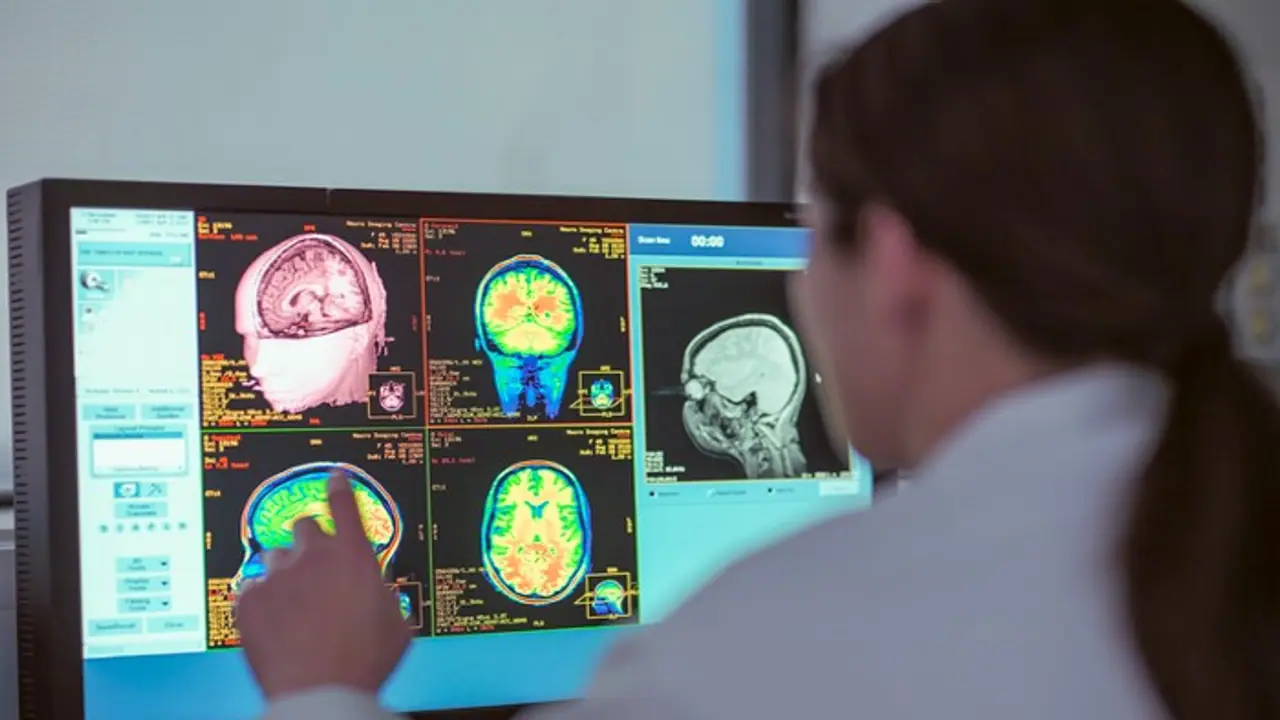In a revolutionary study published in the Proceedings of the National Academy of Sciences, researchers have uncovered compelling evidence that damage to specific brain networks may play a crucial role in the development of religious fundamentalism.

In a revolutionary study published in the Proceedings of the National Academy of Sciences, researchers have uncovered compelling evidence that damage to specific brain networks may play a crucial role in the development of religious fundamentalism. By examining individuals with focal brain lesions, the study revealed that injuries primarily affecting areas in the right hemisphere are closely associated with heightened fundamentalist beliefs. This discovery opens up new horizons in the intersection of neuroscience and religious psychology.
Religious fundamentalism, characterized by strict adherence to unwavering religious doctrines, has often been linked to cognitive traits like authoritarianism, reduced skepticism, and rigid thinking. While much research has traditionally focused on social factors such as family upbringing and cultural influences, there has been a growing interest in the biological underpinnings of this phenomenon.
Until now, studies on the brain’s role in religious beliefs have been sparse, but this new research may finally shed light on how certain neural networks shape these convictions.
Driven by a desire to fill a critical gap in understanding, the team behind this study aimed to explore how brain lesions might impact religious beliefs—particularly fundamentalism. Previous research suggested that damage to the prefrontal cortex might increase fundamentalist tendencies, but those studies were limited in scale and scope. This new investigation proposed that rather than a single brain region, fundamentalist beliefs could arise from damage to a broader network of interconnected areas.
“My primary interest is and has been mystical experience. But in the process of researching the cognitive neuroscience of mystical experience, I came across brain network associations with religious fundamentalism,” noted lead author Michael Ferguson, an instructor in neurology at Harvard Medical School, reported PsyPost.
Using an advanced technique known as lesion network mapping, the researchers sought to pinpoint how brain injuries disrupt belief formation. The study analyzed two large groups of individuals with brain damage. The first group included 106 Vietnam War veterans who had sustained traumatic injuries in combat, while the second group comprised 84 rural Iowans with brain damage from strokes, surgeries, or traumatic accidents.
Both groups completed assessments that measured religious fundamentalism, responding to statements that gauged rigid, unchangeable beliefs about religion. By meticulously mapping each participant's brain lesions using cutting-edge imaging techniques, the researchers identified striking patterns that linked damage in specific brain areas to an increased likelihood of holding fundamentalist beliefs.
The study found that lesions in the right superior orbital frontal cortex, right middle frontal gyrus, right inferior parietal lobe, and left cerebellum were significantly associated with higher scores on the fundamentalism scale. On the other hand, damage to regions such as the left paracentral lobule and right cerebellum appeared to reduce these beliefs.
“The strength and reproducibility of the signal between psychological self-report measures of religious fundamentalism and the functional networks we identified in the brain surprised me,” Ferguson explained to PsyPost. “It increases confidence in the results.”
Intriguingly, the brain regions highlighted in this research belong to a broader neural network tied to essential cognitive functions like reasoning, belief formation, and moral decision-making. These areas are also linked to conditions such as pathological confabulation—a disorder in which individuals create false beliefs or memories, often exhibiting cognitive rigidity and difficulty revising their views. The overlap between fundamentalism and these cognitive traits further solidifies the notion that brain injuries may foster more rigid forms of thinking.
Further adding to the intrigue, the study uncovered spatial overlap between brain lesions linked to criminal behavior and the network associated with religious fundamentalism, a finding that echoes previous research linking extreme beliefs to hostility and aggression.
“It’s sobering, but one of the takeaway findings is the shared neuroanatomy between religious fundamentalism, confabulations, and criminal behavior,” Ferguson remarked. “It refocuses important questions about how and why these aspects of human behavior may be observed to relate to each other.”
The researchers are quick to emphasize that damage to these brain networks doesn’t guarantee the development of fundamentalist beliefs. Nor does it imply that individuals with strong religious convictions have brain damage. Rather, the study highlights the role that specific brain circuits may play in shaping the rigidity or flexibility of belief systems, particularly when it comes to religion.
“A major caveat is that these results do not indicate that people with strong religious beliefs confabulate or that individuals high in religious fundamentalism commit crimes,” Ferguson clarified. “Rather, our data may help us understand the style of cognitive or emotional processing that increases or decreases the probability of holding fundamentalist attitudes.”
Looking ahead, the researchers urge future studies to investigate how these brain networks influence religious fundamentalism across more diverse populations, including those from non-Christian backgrounds. Additionally, they call for research on patients before and after brain injuries to better understand how neural changes may alter beliefs over time. This study also raises the tantalizing question of whether similar neural patterns might emerge in other belief systems, such as political ideologies or moral convictions, that exhibit cognitive rigidity.
“The personal beliefs of the authors span a broad continuum from adherents of religious faiths through agnosticism to atheism,” Ferguson added. “We approach the weighty subject matter of this research as earnest seekers of scientific data and encourage readers to receive our results in the spirit of open-minded empirical inquiry driven by scientific curiosity and without prejudice or malice to any group or faith.”
